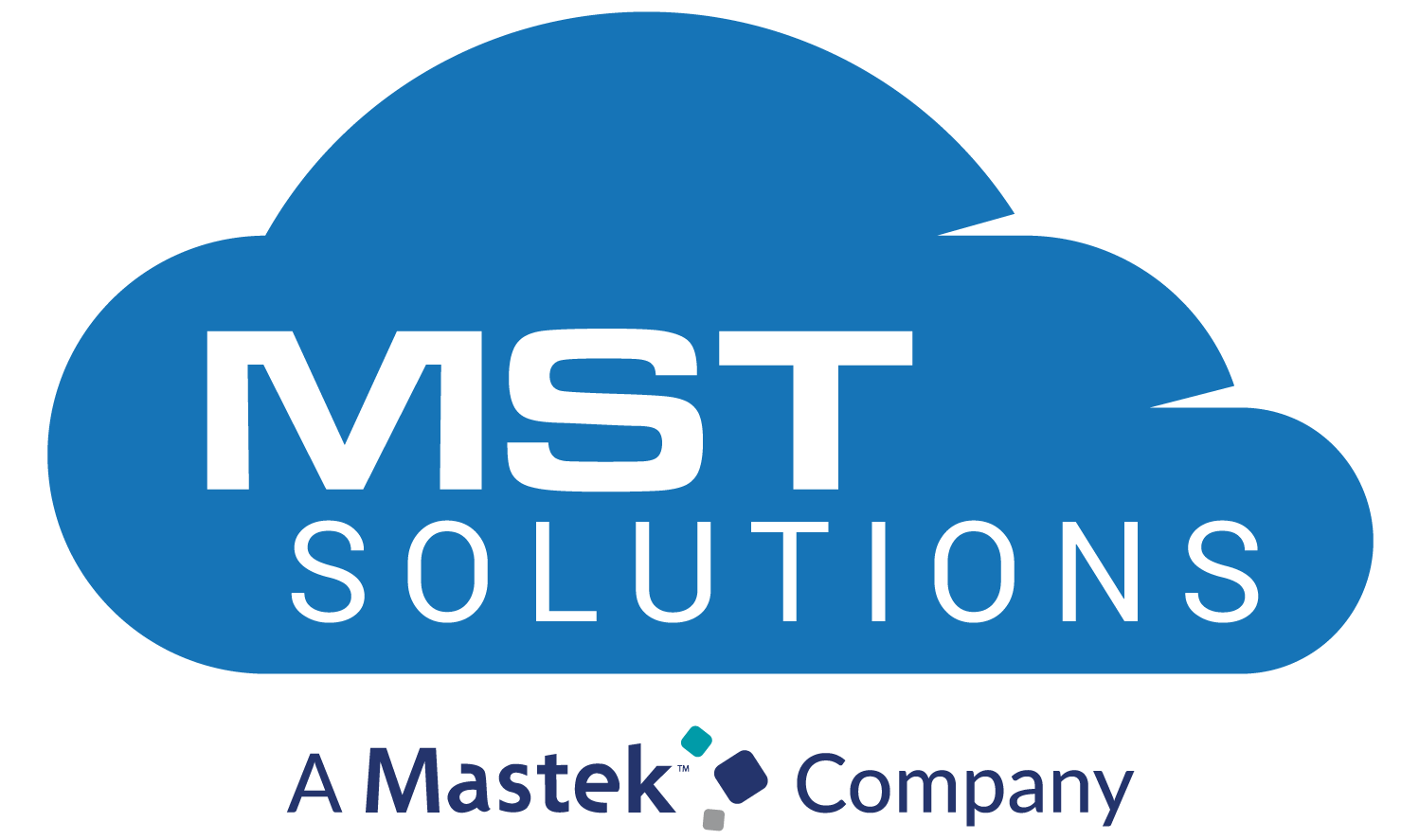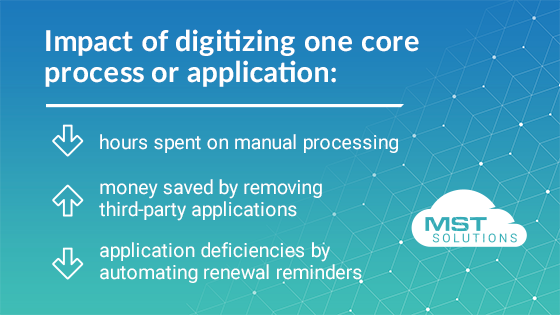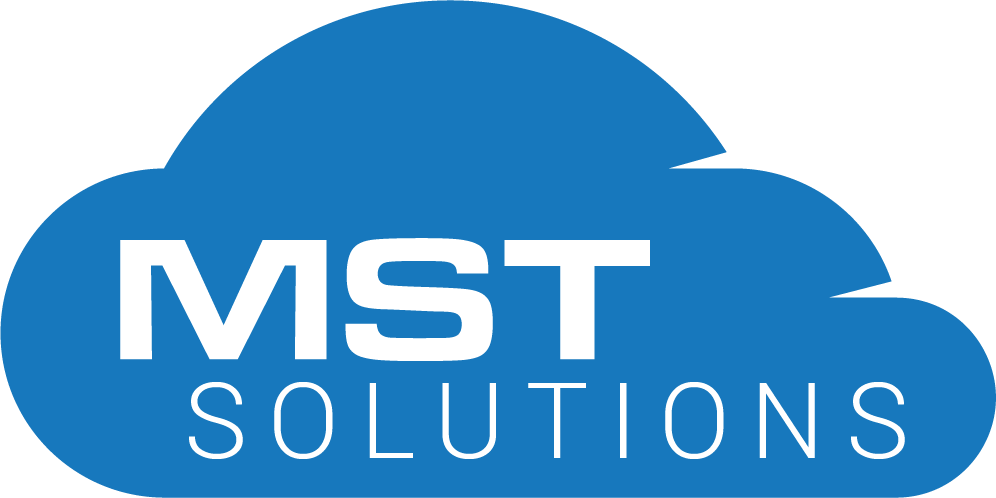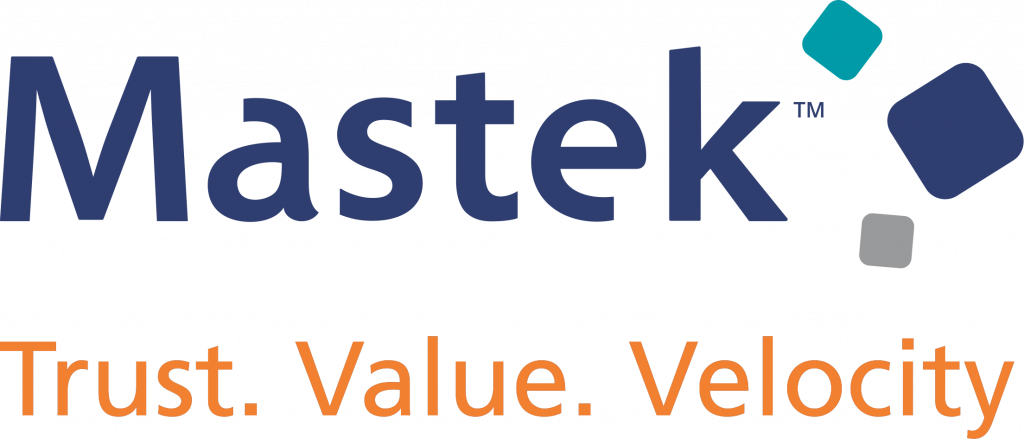The last several months have brought a new sense of urgency to something licensing agency leaders have known for a while: migrating to the cloud is no longer a nice-to-have, it’s a necessity.
The pandemic, in a matter of a handful of months, has completely altered the way everything from schools to governments function, and it has upended the digital transformation roadmap for most organizations. Instead of something to be achieved in the near future, for most organizations digitization has become an endeavor that needed to be done yesterday.
In some cases, digital deficiencies revealed inherent flaws in processes, and other cases –– particularly in the public sector –– it completely shut down certain services and lines of business. Many licensing agencies, for example, are still operating primarily using paper, manual processes, and requiring in-person visits. But the problem with manual processes is essentially two-fold: 1) many government agencies are now mandated to work remotely, and 2) many citizens –– particularly the immunocompromised –– are uncomfortable handling transactions in-person.
And while some agencies are in fact using technology, they may be saddled with old-school mainframes, legacy software, or simply outdated processes that have made their jobs challenging and nearly impossible to get through the mountain of applications because they are so labor-intensive.
Licensing is vital to the economy
Licensing agencies are significant economic drivers for state and local governments. Take occupational licensing for example. This is an area that has grown five-fold in the U.S. since the 1950s. As of 2018, more than 43 million U.S. workers (or 22% of the employed population) held an occupational license.
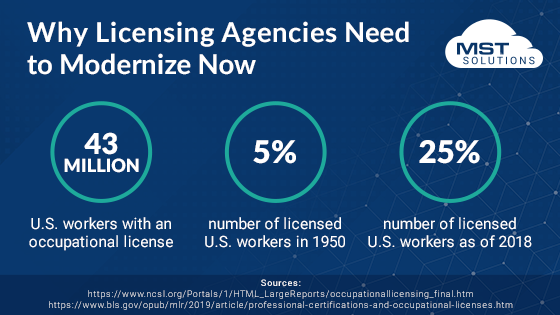
Despite the tremendous growth in the licensing sector, there remains a tremendous imbalance between the application to staff ratio. On top of that, state and local governments are increasingly feeling the pressure to increase efficiency, drive revenue, and satisfy citizens.
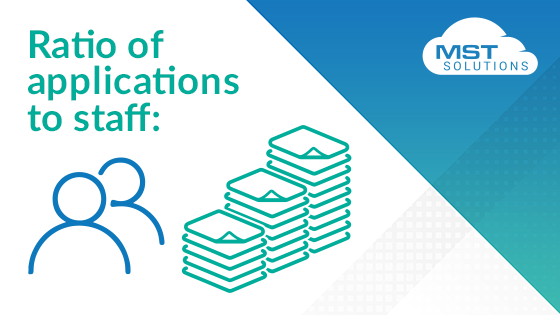
Doing more with less
Licensing agencies are being forced to do more with less. Not only do you have to more efficiently handle inbound requests and create transparency for all stakeholders –– you now have to figure out how to deliver this virtually.
In addition to finding ways to manage processes remotely, you’re likely also dealing with squeezed budgets and years of reduced tax revenue. At a time when change is most desperately needed, most agencies don’t have the means to complete a significant digital overhaul.
If you’re like most agencies, you likely have not made much progress on the path to modernization. There’s a good chance you’re battling a disparate system of applications and tools, siloed information, and an inability to access necessary information remotely. And the reality is, many agencies were not prepared for the almost overnight shift to virtual workforce and workload management.
But with great challenges, come great opportunities. Take for example the Texas Department of Insurance (TDI). In the aftermath of Hurricane Harvey, TDI realized their processes were slow and outdated. During that time, call centers experienced wait times of up to an hour. Fast forward to March of this year, and the average wait time had dropped to about 30 seconds.
The same can be said about TDI’s efficiency with the licensing process. In 2019, their average time for processing a license was 5.6 days. Today, it’s just over 24 hours.
It’s a valuable lesson for agencies: minimize future impact by learning from the challenges of today.
Starting small can deliver seismic impacts
As many agencies look for solutions to remote work and efficiency problems, many are burdened with one challenging question: how do we balance modernization through digitization while managing the budgetary constraints?
Not to oversimplify it, but the answer can be quite straightforward: start small.
Implementing technology for licensing agencies doesn’t have to be an all-or-nothing scenario. Rather than wait for the budget to complete a major digital overhaul, start by assessing your most pressing needs. Even digitizing one or two processes at a time –– ideally, the ones that represent the biggest revenue sources, or applications that represent a majority of your requests–– can have a dramatic impact on the organization.
Starting small can support change management as well. It enables your team to get used to working in a particular system or handling particular processes. Then, over time, you can roll out additional enhancements instead of implementing a massive, overwhelming technological overhaul all at once. At the same time, this helps your team better identify what they need next as they use and adapt to the new systems put in place.
Often if you’ve proven out the concept with your digital efforts on a smaller scale, then you can get more money after demonstrating success. Keep in mind, change doesn’t happen overnight –– nor does it have to. Implementing small changes now can go a long way towards setting yourself up for future success.
If you’d like to learn more about how you can start to optimize now, with the budget you have, click here.
How to Find the Right Technology and Partner for Your Licensing Agency
Things to consider to select the right technology and partner
